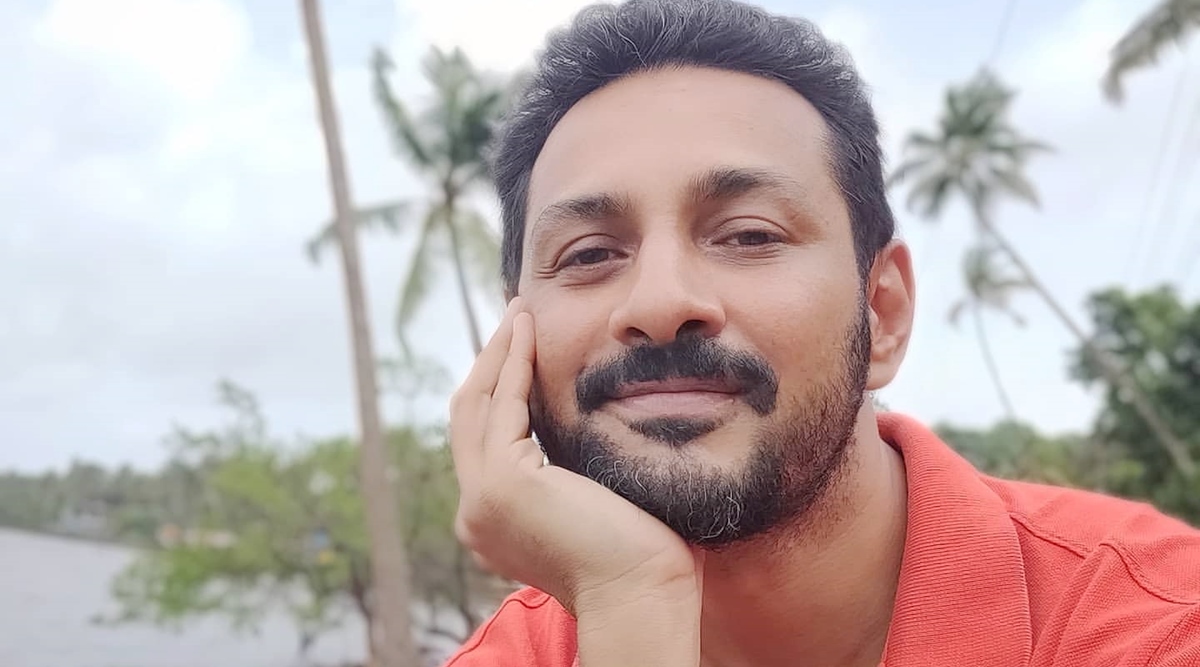After watching Badhaai Do, I thought, how did they know about my story of coming out?-Apurva Asrani
8:16 AM
Posted by Fenil Seta

Saptaparna Biswas (BOMBAY TIMES; February 28, 2022)
When writer-editor Apurva Asrani, a prominent voice in the LGBTQIA+ community and someone who is out and proud, went to watch Badhaai Do recently, all he expected was just another mainstream film touching upon the community. But he was pleasantly surprised by the story, and was reminded of his personal struggles with coming out while watching it. Moved by the relatable portrayals, Apurva penned a note of appreciation for the Junglee Pictures’ film. In a chat with us, Apurva spoke about how such films help get rid of tokenism and make real conversations happen. Excerpts:
‘HOW DID THEY KNOW ABOUT MY STRUGGLES SO WELL?’
While there have been many other films portraying the struggles of the queer community lately, Apurva says the portrayals in Badhaai Do are closest to real-life struggles of queer persons. He shares, “I went to the cinema hall expecting yet another commercial film which doesn’t really capture the heart and soul of the LGBTQIA+ struggle. But, what struck me was that the writers have truly understood the journey of the community and have got the nuances in portrayal of the characters right.”
The film also got him to recollect his personal experiences. “I was genuinely touched by the depth of emotions in the same-sex relationship explored in Badhaai Do. I was like ‘How did they know what happened with me?, How did they know about my heartbreak?, How did they know about my story of coming out, and my yearning to be a parent?’ The film reflects the thoughts and feelings of the queer community so well, and for that, it deserves all the love coming its way,” says Apurva.
‘IT IS HARD TO RETAIN THE ESSENCE OF STRUGGLES IN AN ENTERTAINING FORMAT’
Apurva feels that as long as stories are written sensitively, the audience will relate to them. “I’m not of the opinion that you essentially need LGBTQIA+ actors to essay these roles, because actors can and should be able to play any character. What you need is queer representation in the writing team to be able to bring genuineness to the story and expression. I feel Badhaai Do achieved that,” he says, adding, “Rajkummar Rao and Bhumi Pednekar have no doubt done a phenomenal job. They’ve added so much magic, and they’re so brave in their portrayals. But I really want to compliment the writers for bringing the conversation in such an entertaining format for family audiences and a larger population while keeping the heart of the struggle very much alive. It’s a difficult thing to achieve. Because so far we have either talked of the predicament or made light of it – to attain a balanced portrayal is a hard job.”
Apurva also emphasises on the importance of having such films in mainstream viewing so audiences get an idea about diversity of the members of the queer community.
‘MAINSTREAM FILMS HAVE THE POTENTIAL TO IMPACT PEOPLE IN RURAL BELTS TOO’
While many OTT shows and films have managed to strike up conversations about queer love and relationships, Apurva feels that with relatable characters and a theatrical experience, mainstream films can make a larger impact in terms of sensitization. “Just the fact that this is the kind of film that your family would watch together gives you a common ground to strike up conversation. That’s a very big deal. I worked as an editor on the show Made In Heaven, and the show encouraged people to have dinner time conversations around love and same-sex relationships. Badhaai Do has the potential of doing this in cinemas pan-India, in the rural and regional belts where parents and kids can watch it comfortably and have discussions around the topic. Today, if a young person wants to come out of the closet, they have these references to start with. Rajkummar and Bhumi’s characters elicit respect, right till the end of the film. They have a job, they have a role in their families – it brings LGBTQIA+ characters in the family construct, and into the mainstream social fabric. A film like Badhaai Do engages the community – and then you know that the makers’ hearts are in the right place,” says Apurva, on a concluding note.
This entry was posted on October 4, 2009 at 12:14 pm, and is filed under
Apurva Asrani,
Apurva Asrani interview,
Badhaai Do,
Bhumi Pednekar,
Interviews,
Rajkummar Rao
. Follow any responses to this post through RSS. You can leave a response, or trackback from your own site.
Subscribe to:
Post Comments (Atom)
Post a Comment